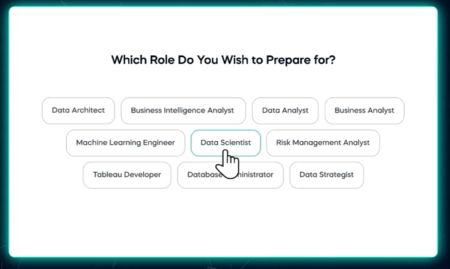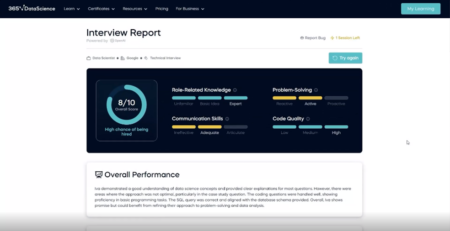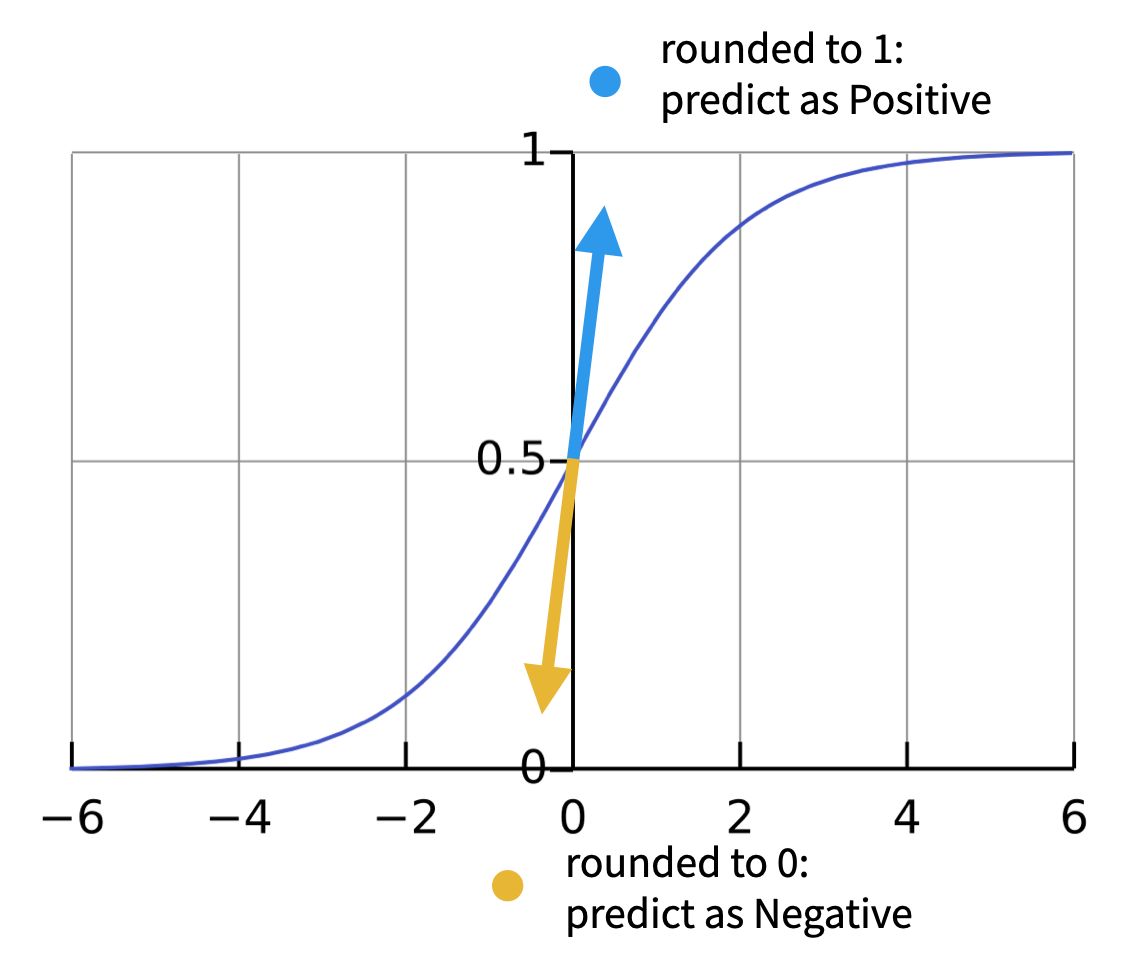In an exciting development for aspiring data scientists and analysts, 365 Data Science has launched InterviewAce, an AI-powered interview preparation tool designed to give candidates a competitive edge in the job market. This innovative platform offers a unique, personalized approach to interview prep, including the ability to practice technical questions such as R programming.
Explore InterviewAce for free here.
Tailored Preparation for Data Science Roles
InterviewAce stands out by offering customized interview simulations for a wide array of data-related positions, including:
- Data Scientist
- Data Analyst
- Machine Learning Engineer
- Business Analyst
- BI Analyst
- Data Architect
- Risk Management Analyst
- Tableau Developer
- Database Administrator
- Data Strategist
Unlike generic interview preparation tools, InterviewAce is specifically tailored for data professionals. It goes beyond general questions, offering a focused approach that addresses the unique challenges and requirements of data-related roles.

Realistic Interview Scenarios with Coding Capabilities
One of InterviewAce’s standout features is its ability to simulate real-world interview scenarios, including technical assessments. Users can demonstrate their coding skills directly within the tool, including R programming. This feature offers several benefits to candidates.
First, it allows users to familiarize themselves with common technical coding questions that are frequently asked in data science interviews. By practicing these questions, candidates can build confidence and improve their problem-solving skills.
Second, the platform provides immediate feedback on code quality and efficiency. This instant evaluation helps users identify areas for improvement and refine their coding practices to meet industry standards.
Last, InterviewAce enables candidates to enhance their ability to explain technical concepts clearly—demonstrating not only technical proficiency, but also the ability to communicate complex ideas effectively to both technical and non-technical audiences.
AI-Driven Personalization
InterviewAce leverages OpenAI’s GPT models to deliver a personalized preparation experience. The tool adapts to each user’s responses, offering customization for both HR and technical interview simulations. This tailored approach includes several key features.
The platform adjusts question difficulty based on the user’s proficiency, ensuring candidates are consistently challenged at an appropriate level.
The AI also analyzes and interprets the user’s previous experience, selecting targeted questions based on this knowledge.
Finally, InterviewAce simulates the interview style of specific target companies, helping candidates prepare for the unique approaches and expectations of their desired employers.
Comprehensive Feedback and Continuous Improvement
InterviewAce provides comprehensive feedback after each practice session, including overall scores with personalized comments. Users also receive individual critiques for each answer, providing detailed insights.
This feedback highlights areas for improvement, breaking down performance across various skill areas and offering tailored suggestions for specific questions or topics.
Furthermore, InterviewAce recommends additional study resources to help users expand their knowledge and address any gaps in understanding, ensuring continuous growth and preparation.

Key Features of InterviewAce
- Daily practice with two interview sessions
- Speech-to-text functionality for natural responses
- Comprehensive reports and scoring to track progress over time
- Company-specific interview customization to prepare for target employers
- In-platform coding assessments, including R programming
- Both HR and technical interview simulations to cover all aspects of the interview process
Free Access
InterviewAce is now available to all 365 Data Science users, requiring only a free account to access. This accessibility ensures that aspiring data professionals from all backgrounds can benefit from this powerful tool, regardless of their current career stage or financial situation. By democratizing access to high-quality interview preparation, 365 Data Science is helping to level the playing field in the competitive data science job market.
InterviewAce marks a significant advancement in interview preparation for data professionals. By combining AI technology with a focus on both technical and soft skills, 365 Data Science equips candidates with essential tools for success in the data science job market.
With its practical approach and personalized guidance, InterviewAce is a valuable resource for those looking to progress in this dynamic field.
Explore InterviewAce today to enhance your data science interview performance.











